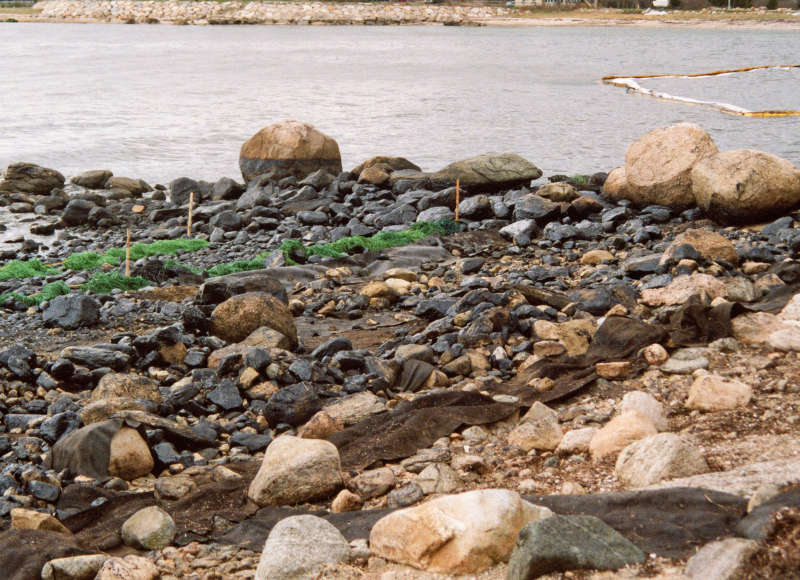Buzzards Bay gets $4.2 million to restore habitats damaged by Bouchard oil spill
More than 11 years after the Bouchard B-120 oil spill devastated Buzzards Bay’s environment and damaged the local economy, the Bay is finally seeing funding to restore some of the shorelines, aquatic life, and shellfish beds that were damaged by the spill.

In 2003, an oil barge ran aground and spilled 98,000 gallons of fuel oil into the Bay. The spill killed fouled nearly 100 miles of beaches and marshes, including the shores of West Island in Nasketucket Bay.
This month, the Bouchard B-120 Trustee Council announced plans to award more than $4.2 million in settlement funds to 19 projects that will improve habitats and public access on the Bay. Two of these awards – Nasketucket Bay land protection and Weweantic River restoration – will help fund two major Coalition conservation projects.
On Nasketucket Bay, the Coalition will put $960,000 toward the Nasketucket Bay Land Conservation Project, which will forever protect more than 410 acres of fields and forests in Fairhaven and Mattapoisett. Not only will this project conserve land, wildlife habitats, and clean water, but it will also provide even more public access to the coastline.
With a $365,000 award, the Coalition will evaluate how best to restore fish passage on the lower Weweantic River at Horseshoe Mill. The Weweantic is the Bay’s largest tributary and one of its most important and unique habitats for migratory fish. River herring, rainbow smelt, brook trout, and other native species used to flock to the Weweantic each spring. But today, run-down remnants of the old mill block most fish from reaching their upstream spawning areas. Restoring this part of the river will support healthy fish populations and create a more welcoming place for local residents to enjoy.
Other projects that will be funded include restoring Round Hill Marsh and Allens Pond Marsh in Dartmouth, improving trails at coastal parks, installing public boat ramps in Dartmouth and Wareham, and seeding and transplanting shellfish to restore populations of quahogs, oysters, and bay scallops across the Bay.
In 2003, a barge operated by the Bouchard Transportation Company ran aground, spilling 98,000 gallons of fuel oil into the Bay. The spill killed sea birds, contaminated shellfish beds, and fouled nearly 100 miles of beaches and marshes. The Coalition worked with federal and state officials to guide these settlement funds toward projects that will restore resources that were most heavily harmed by the spill.